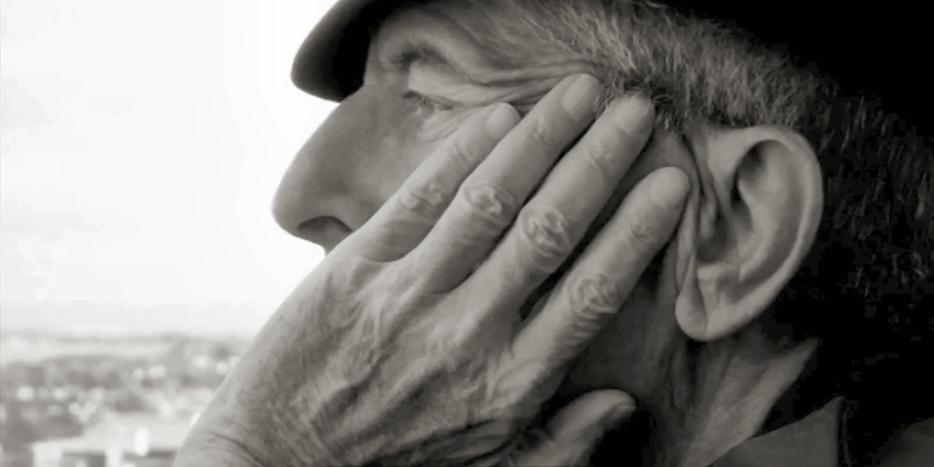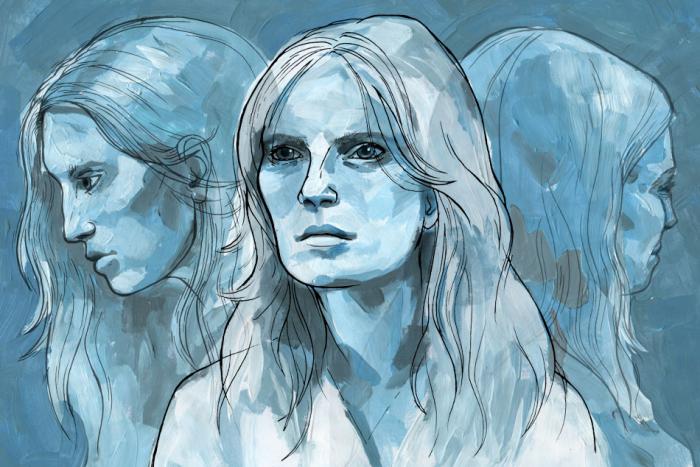When I lived in Montreal in the late 1970s and early ‘80s, Leonard Cohen haunted the city in a way that not even Pierre Elliot Trudeau or Rene Levesque or any of the Habs or Expos did. A friend claimed to have seen him, flanked by two women, at Vol de Nuit, the kind of place that then seemed too chic and expensive and exclusive for college kids. Whenever I’d walk by, I’d wonder if he might be there, but I never had the nerve to go inside.
At the time, my friends and I considered Cohen a great poet and novelist who dabbled in music. Although we all knew the obvious songs, including “Suzanne,” “So Long, Marianne” and “Bird on a Wire” from the ‘60s—had sung them around campfires, in fact—we listened to The Clash and Elvis Costello and, speaking of poets, Patti Smith. Meanwhile, even Cohen had disowned the Phil Spector-produced 1977 album Death of a Ladies Man. But while his records weren’t exactly cool, he and his books were.
I’d first read The Favourite Game in a Canadian Literature course I took as an elective while still an uninspired first-year mining engineering student. I savoured that book when I should have been trying to solve five-hour Mechanics problems and getting my head around Computer Programming on punch cards. While it wasn’t the book that triggered my switch into English Lit—I did that a year later after reading John Steinbeck’s East of Eden in the wake of seeing the James Dean movie—Cohen’s first novel played a role in that holy conversion.
Even after I became an English major, I didn’t read much poetry, but I loved the hardcover copy of his Selected Poems 1956-1968 that I’d found in The Word, Montreal’s best second-hand bookstore. I would stand on the furniture in my friend Amy’s apartment and read the poems aloud to her. And I was eager to tackle Beautiful Losers, which was always on those lists of the twenty-five best Canadian novels back then. Unfortunately, upon reaching page seventy-five, I declared the book unreadable and tossed it aside.
I was callow enough to argue the critics were ridiculous for preferring it over The Favourite Game, but deep down I sensed that maybe I wasn’t quite ready for Beautiful Losers. Perhaps I wasn’t smart enough or maybe I was missing something. The poetic writing was confusing and hard to get through and my (admittedly limited) sexual experiences were nothing like the ones in the book. And unlike the first novel, this one had no characters for me to identify with. But between my love of The Favourite Game and the critics’ love of Beautiful Losers, I didn’t let my failure to finish the book diminish the author in my eyes.
Someday, I figured, I’d try again. But for a long time, I didn’t. I carted that book from city to city and house to house for three-and-a-half decades. And even as I collected more and more of his music, that book sat untouched on the shelf.
When Cohen died a year ago in November of 2016, his more recent records were already on heavy rotation in my home. I spent some time listening to older albums and deep cuts I hadn’t heard in a while and then decided to go back to his prose. After he switched careers and became a singer-songwriter, Cohen continued to put out the occasional book of poetry, but never published another novel. The decision to pursue music as a career certainly proved a good one—for him and for us—but I was still curious about what we lost when he gave up writing fiction.
*
When The Favourite Game appeared in 1963, Cohen was already a critically acclaimed poet. He’d followed his 1956 debut, Let Us Compare Mythologies, with The Spice-Box of Earth in 1961. But after the publication of Beautiful Losers in 1966, he turned to music, releasing Songs of Leonard Cohen in 1967. At least there was the possibility of some money in it.
Wittingly or not, he’d hinted at this move in his first novel when Lawrence Breavman, the autobiographical protagonist, says, “In this country writers are interviewed on TV for one reason only: to give the rest of the nation a good laugh.” Of course, poets have long been undervalued, but while Canada had produced some great novelists, Canadian literature as a crusade was in its early stages when Cohen wrote his novels. In Arrival: The Story of CanLit, Nick Mount does an impressive job of making a story about the birth of a national literature actually entertaining. The “CanLit boom” lasted a quarter century, from 1959 to 1974, and Mount gives much of the credit to an increasingly wealthy citizenry. “Affluence didn’t make the CanLit boom possible: it made it necessary, the therapist and companion to a society,” he writes. “It couldn’t cure what ailed them, but it could tell them they were not alone.”
There were other factors, too, of course. These included the 1951 Massey Report (officially the Royal Commission on National Development in Arts, Letters and Sciences); the new Canada Council (which Mount downplays as a minor character in the boom); demographics; and swelling cultural nationalism. And while lots of people were involved, two were crucial. As the producer of CBC Radio’s Anthology and editor of The Tamarack Review literary journal, Robert Weaver gave many writers their start and sometimes paid for work he’d never air or publish just to keep a writer writing (he earned his unofficial title as the “Godfather of Canadian Literature”). Meanwhile, McClelland & Stewart’s Jack McClelland believed in publishing authors, not books, and used his remarkable promotional skills to help some of his list sell well (Cohen would later call the showman “the real Prime Minister of Canada”).
By the time Margaret Atwood published her controversial Survival: A Thematic Guide to Canadian Literature in 1972, writers could make a living in this country. And I would get to read Alice Munro stories in high school and then go on to take a university course devoted solely to domestic literature. But Canadian books in Canadian schools came too late for Cohen. He’d already moved on to music. His contribution to literary fiction amounted to two not-that-popular novels.
After Cohen’s death, I pulled the British first edition (without a dust jacket) of The Favourite Game off my bookshelf. I’d found it in a second-hand bookstore for $20 sometime after I’d first read it four decades ago. At the time, I didn’t realize this was the real first edition. Although M&S had published The Spice-Box of Earth, McClelland initially passed on The Favourite Game. But London’s Secker & Warburg agreed to put it out. In 1964, Viking released it in the United States. North of the border, a domestic edition finally appeared in 1970 as part of the New Canadian Library paperback series from M&S.
A series of vignettes or scenes of Breavman and his pal Krantz growing up from boyhood to early adulthood, the cinematic book is a poetic, erotic and funny bildungsroman. That was a term I didn’t know when I first read it as an engineering student, but I’d had a fondness for coming of age stories ever since reading Catcher in the Rye for the first time in my early teens. Cohen’s novel is set in and around Montreal, in places and on streets I knew. Breavman goes to McGill; I was at McGill. Breavman takes a room on Stanley Street; I lived on Stanley Street. Breavman has many lovers; I wanted many lovers.
On second reading, I didn’t love it as much as I had the first time—which, I suppose, was inevitable—but several scenes continued to reverberate in my head, which is always a great compliment to a writer.
Next, I took Beautiful Losers from my bookshelf. My copy is a Bantam mass paperback edition (seventh printing, 1970) with a cover price of 95 cents. Above Cohen’s name and the title, a sell line in big, black block letters reads: “The Most Daring New Novelist on the Scene Today!” Although there’s some water damage at the bottom of the first eighty pages or so, I wanted to read this copy because it’s the one I’d given up on all those years ago.
When I’d first read The Favourite Game, its eroticism already seemed tame. But Beautiful Losers is still a dirty book; I can’t think of another novel I’ve read in which a woman’s vagina is referred to as a cunt so frequently. According to I’m Your Man, Sylvie Simmons’s 2012 biography of Cohen, “When he had first read Leonard’s manuscript in May 1965, McClelland found it ‘appalling, shocking, revolting, sick,’ but also ‘wild and incredible and marvellously well written.’ ‘I’m not going to pretend that I dig it, because I don’t,’ he wrote to Leonard. ‘I’m sure it will end up in the courts, but that might be worth trying. You are a nice chap, Leonard, and it’s lovely knowing you. All I have to decide now is whether I love you enough to spend the rest of my days in jail for you.’”
McClelland didn’t have to do time; in fact, while some stores refused to carry it, Beautiful Losers faced no censorship or legal problems. But it did provoke strong reactions. The Globe and Mail called it “verbal masturbation” and said, “It’s hard to imagine any reason for publishing such a book, so bankrupt and derivative are the ideas in it and so chaotic is the style.” Meanwhile, in his Toronto Daily Star review, Robert Fulford declared, “This is, among other things, the most revolting book ever written in Canada.” But he also called it “an important failure” and concluded that it was “probably the most interesting Canadian book of the year.” The controversy didn’t help sales, though; those—and the critical accolades—came only after Cohen became a famous musician.
Written on the Greek island of Hydra, with the help of amphetamines (along with hash and LSD) and with The Genius Sings the Blues by Ray Charles always on the turntable, Beautiful Losers is a trippy gumbo thick with imagery and symbolism. It includes all manner of sex (hetero, homo, auto and mechanical); the conversion of Indigenous peoples by the Jesuits; a sexual game called the Telephone Dance; spiritual and religious rants and musings; art; body-building ads in comic books; drugs; a sex toy called the Danish Vibrator; the Quebecois independence movement; paranormal activity in a Montreal movie theatre; and much more.
The four characters are an unnamed old folklorist in a treehouse; his mentor and lover, a now-dead Parliamentarian and separatist named F.; Edith, the folklorist’s wife and F.’s lover, who killed herself by sitting in an elevator shaft and waiting; and Catherine Tekakwitha, a real-life seventeenth-century Mohawk woman who converted to Roman Catholicism at nineteen, took a vow of virginity and died in a Jesuit mission at the age of twenty-four due to fasting and self-mutilation (the Church later canonized her). The opening line of the book is, “Catherine Tekakwitha, who are you?”
But trying to summarize the elements doesn’t help much and is probably beside the point. Even when I finished it, I had little sense of what the book was about. “Beautiful Losers is a prayer for both union and emptiness, and a quest for sexual and spiritual fulfillment,” according to Simmons. “It’s a satire on life in the sixties.” Okay, sure.
For his part, Mount says, “It’s a book about wanting to fuck a saint….” He gives it three stars out of five, which in the rating system he uses in Arrival means “very good” (The Favourite Game gets just two stars, meaning “occasionally interesting”). “Like Jack McClelland, I’m damned if I know if Beautiful Losers is a great book or not,” he writes. “I know it’s a great (if morally difficult) book to teach, but I have a hard time imagining anybody but the very young, the very stoned, or the very overeducated actually enjoying it, and I’m still naïve enough to think enjoyment is part of art.”
In a note to readers for a Chinese edition, Cohen admitted in 2000, “This is a difficult book, even in English, if it is taken too seriously. May I suggest that you skip over the parts you don’t like? Dip into it here and there. Perhaps there will be a passage, or even a page, that resonates with your curiosity… In any case, I thank you for your interest in this odd collection of jazz riffs, pop-art jokes, religious kitsch and muffled prayer…What you have in your hands is more of a sunstroke than a book.”
Beautiful Losers is indeed difficult, and I can’t say I enjoyed it or that I would recommend it to friends. Maybe I took it too seriously. And, yet, McClelland was right—it is marvellously well written. And it left me wishing there were more Cohen novels to read. While plans are afoot to posthumously release The Flame next year, it will be a collection of poems, lyrics, notebook excerpts, illustrations and, apparently, some prose. But my hope for another novel from my man remains unfulfilled.
*
That desire for more leads me to speculate about a timeline in which Leonard Cohen didn’t become a professional musician. I imagine in the fifty years between the release of Beautiful Losers and his death, he would continue to write poetry. He would win much acclaim for it, but not even great poets make a living off their art. So, to survive financially, he’d focus on fiction. Perhaps he would try another experimental novel or two, but then he’d settle into writing more accessible, though still sexy, literary books. After all, as rich and fabulous as his music is, it’s not particularly challenging. And much of it is popular, especially the early folk songs and several of his albums from 1988’s I’m Your Man on. In fact, even as a septuagenarian, he filled hockey arenas (when I saw him at Toronto’s Air Canada Centre in 2012 his fresh and vital performance was nothing like those ridiculous reunion tours of washed-up boomer bands).
By the ‘70s, when people began to take Canadian literature as a given, I’m convinced Cohen would have thrived. We’d all read some of his less erotic books in high school. And actually like them. He wouldn’t churn out novels—we know how long he worked on his songs—but each new one would be an event and attract younger fans because his hipness somehow seemed the inverse of his age. We’d talk about him the way we talk about Munro, Atwood and Margaret Laurence. He’d be less outspoken than Atwood or Mordecai Richler, even reclusive at times, but when he did grant an interview or speak out publicly, everyone would pay attention and appreciate his romantic perspicacity, his spiritual wisdom and his mischievous wit. The people who get uptight about awards would be outraged when Bob Dylan won the Nobel Prize for Literature and Cohen didn’t.
We would all be terribly sad when he died.






